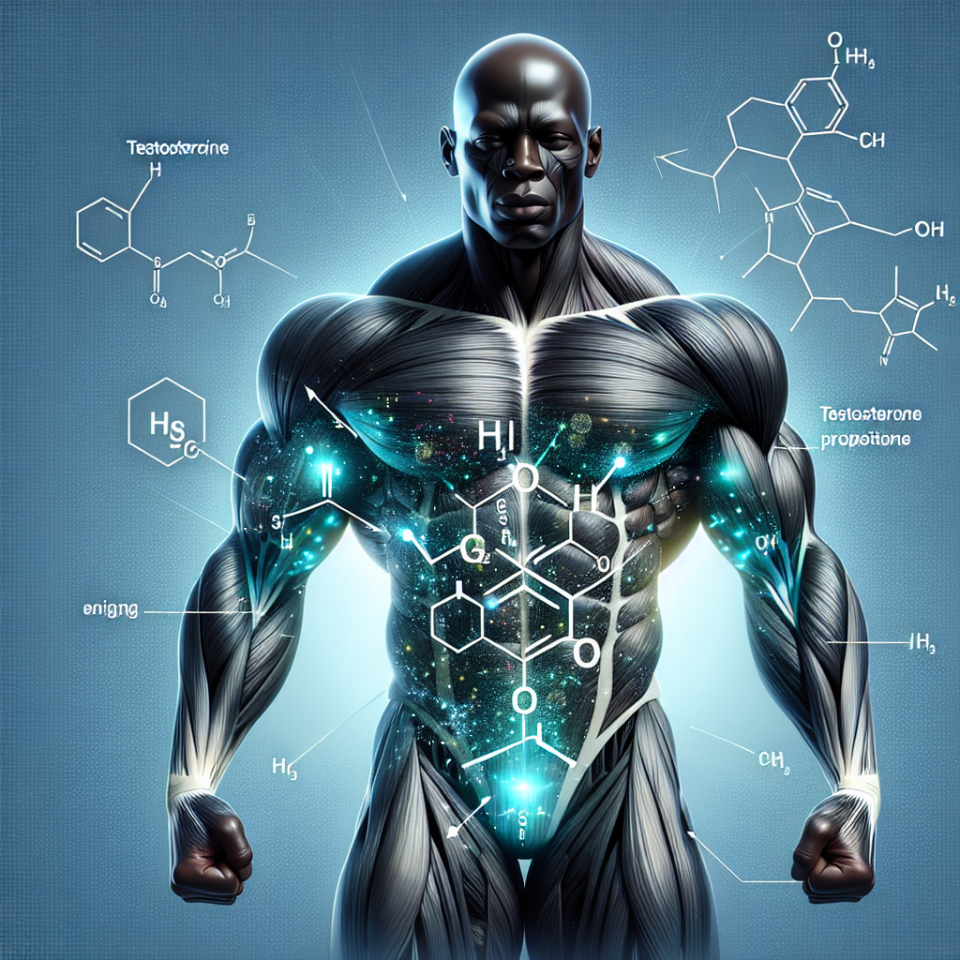-
Table of Contents
Unveiling the Role of Testosterone Propionate in Muscle Building
Testosterone propionate is a synthetic form of testosterone, a naturally occurring hormone in the body responsible for the development of male characteristics and the maintenance of muscle mass. It is commonly used in sports pharmacology for its anabolic effects, particularly in muscle building. In this article, we will delve into the pharmacokinetics and pharmacodynamics of testosterone propionate and explore its role in muscle building.
Pharmacokinetics of Testosterone Propionate
Testosterone propionate is a fast-acting ester of testosterone, meaning it has a short half-life of approximately 2-3 days (Kicman, 2008). This makes it a popular choice among athletes and bodybuilders as it allows for quick clearance from the body in case of drug testing. It is typically administered via intramuscular injection and is rapidly absorbed into the bloodstream.
Once in the body, testosterone propionate is converted into its active form, dihydrotestosterone (DHT), by the enzyme 5-alpha reductase. DHT is a more potent androgen than testosterone and is responsible for the androgenic effects of testosterone propionate, such as increased muscle mass and strength (Kicman, 2008).
Pharmacodynamics of Testosterone Propionate
The anabolic effects of testosterone propionate are primarily mediated by its binding to androgen receptors in muscle tissue. This leads to an increase in protein synthesis, resulting in muscle growth and repair (Kicman, 2008). Testosterone propionate also has anti-catabolic effects, meaning it prevents the breakdown of muscle tissue, further contributing to its muscle-building properties.
In addition to its anabolic effects, testosterone propionate also has androgenic effects, such as increased sebum production and body hair growth. These effects are desirable for male athletes looking to enhance their masculine characteristics, but may be unwanted by female athletes (Kicman, 2008).
Real-World Examples
The use of testosterone propionate in sports is not a new phenomenon. In fact, it has been used by athletes for decades to improve their performance and physique. One notable example is the case of Canadian sprinter Ben Johnson, who was stripped of his gold medal at the 1988 Olympics after testing positive for testosterone propionate (Yesalis, 2000). This incident shed light on the widespread use of performance-enhancing drugs in sports and sparked stricter drug testing protocols.
Another example is the case of bodybuilder Arnold Schwarzenegger, who openly admitted to using testosterone propionate during his competitive years. He credited the drug for helping him achieve his impressive muscle mass and strength (Schwarzenegger, 1977).
Expert Opinion
According to Dr. Charles E. Yesalis, a leading expert in sports pharmacology, the use of testosterone propionate in sports is a form of cheating and poses serious health risks to athletes (Yesalis, 2000). He emphasizes the importance of fair play and the negative consequences of using performance-enhancing drugs, both physically and ethically.
However, some experts argue that when used responsibly and under medical supervision, testosterone propionate can have legitimate therapeutic uses, such as in the treatment of hypogonadism (Kicman, 2008). It is important for athletes to weigh the potential benefits and risks before using this drug for performance enhancement.
References
Kicman, A. T. (2008). Pharmacology of anabolic steroids. British Journal of Pharmacology, 154(3), 502-521.
Schwarzenegger, A. (1977). Arnold: The Education of a Bodybuilder. Simon and Schuster.
Yesalis, C. E. (2000). Anabolic steroids in sport and exercise. Human Kinetics.
Conclusion
In conclusion, testosterone propionate is a powerful drug with significant anabolic and androgenic effects. Its use in sports is controversial and has been associated with numerous doping scandals. While it may provide short-term benefits in terms of muscle building, the long-term consequences and ethical implications must be carefully considered. As with any performance-enhancing drug, it is important for athletes to prioritize their health and well-being above their desire for success.
As experts continue to study the effects of testosterone propionate, it is crucial for athletes to stay informed and make informed decisions about its use. The role of this drug in muscle building is undeniable, but it is up to individuals to weigh the risks and benefits and make responsible choices for their own bodies.
